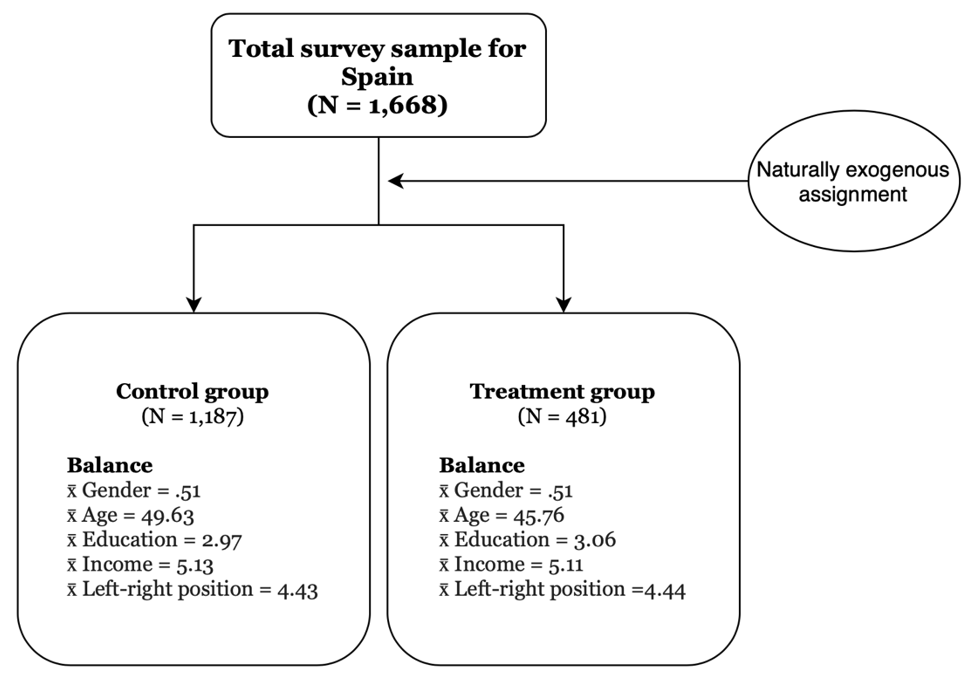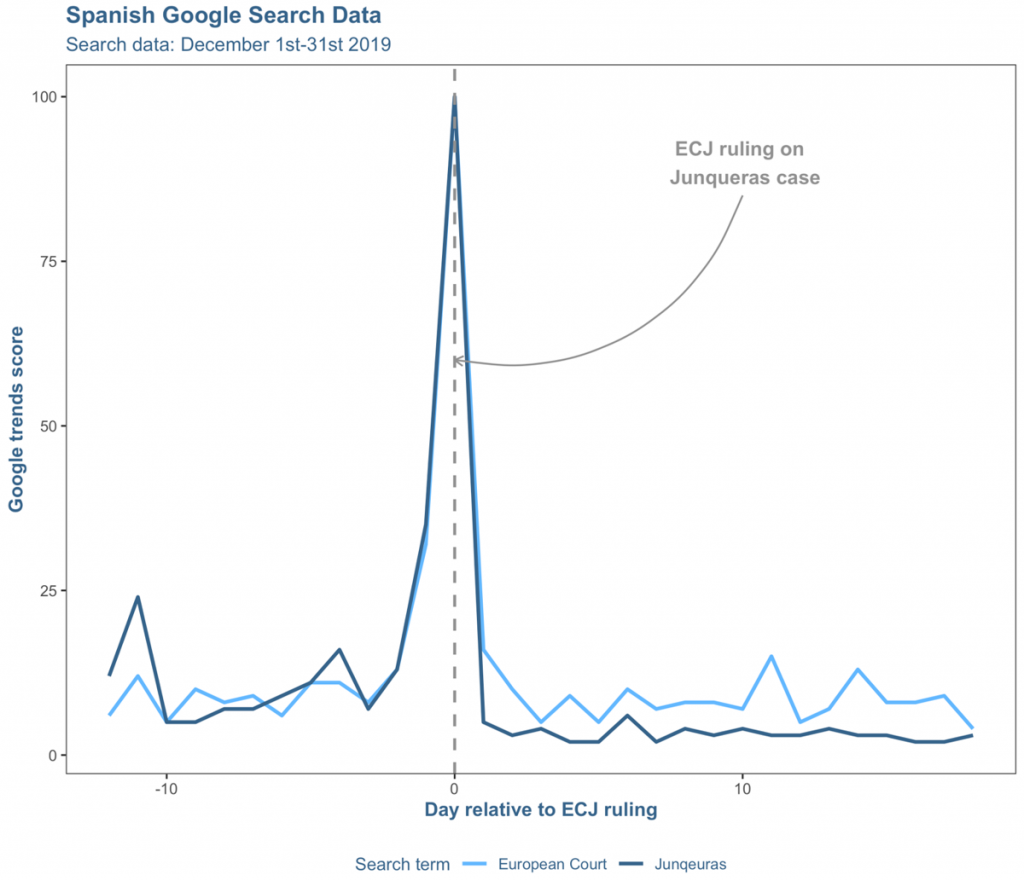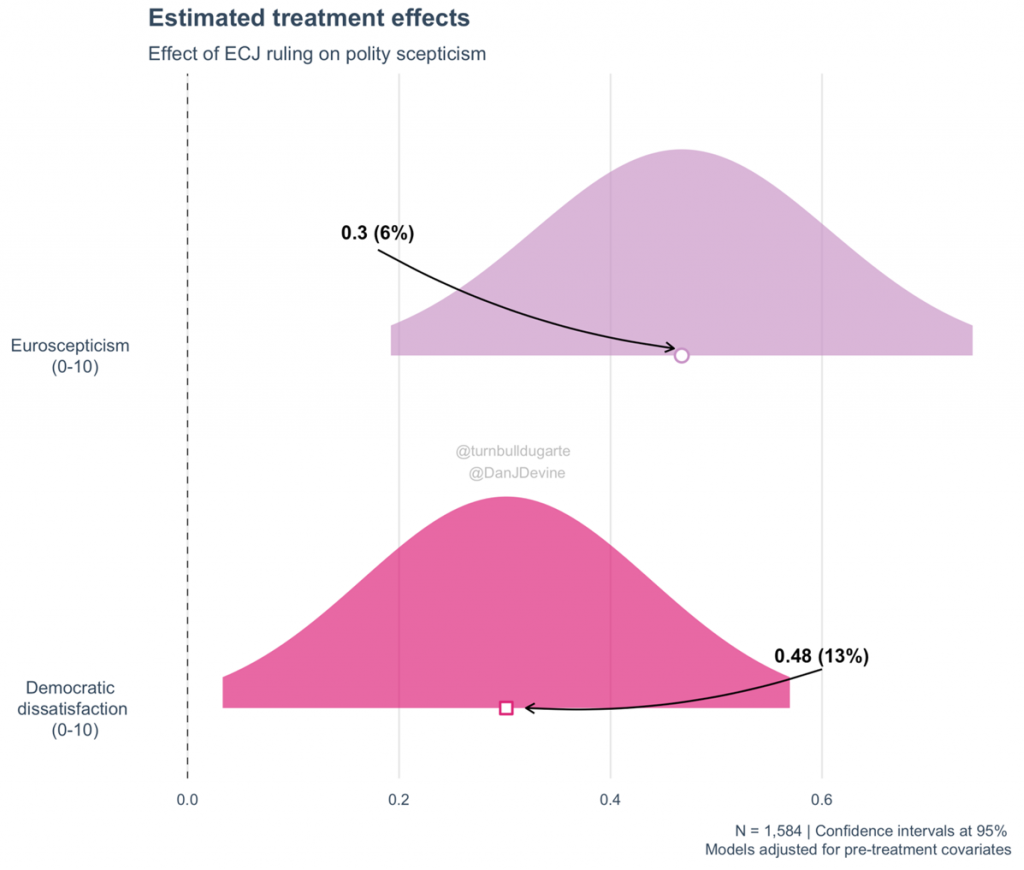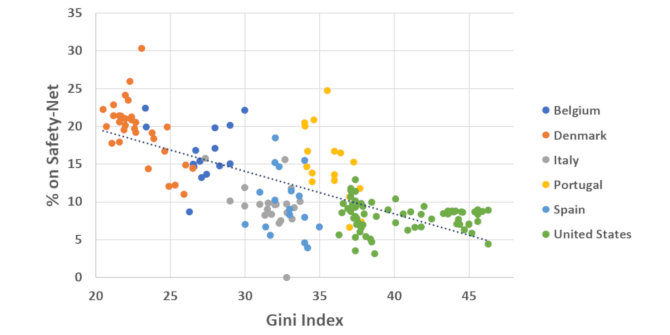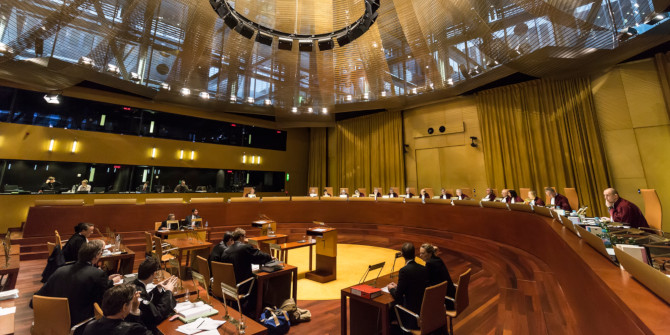Decisions taken by the European Court of Justice (ECJ) can generate substantial political debate, but do they help foster Euroscepticism? Stuart J. Turnbull-Dugarte and Dan Devine present evidence from a study of attitudes in Spain following an ECJ ruling on the case of the Catalan politician Oriol Junqueras in 2019. They find that those exposed to the ruling were 6% more likely to be Eurosceptic and 13% more likely to be dissatisfied with the way democracy works.
Eurosceptic parties, regardless of their ideological colours, are largely united in signalling the EU as a threat to national sovereignty. Concerns over ‘meddling’ Europe have long been a staple in the rhetoric of Eurosceptics in the UK and the promise to ‘take back control’ has undoubtedly become the campaign slogan most commonly associated with the Brexit referendum. In continental Europe, a rise in Eurosceptic attitudes and increased support for Eurosceptic parties was catalysed by the events of the financial crisis and the austerity measures solicited by the European institutions. Many in the debtor countries viewed the EU’s interventions as a constraint on the proper functioning of democratic politics.
The events of the Eurozone crisis and the interventionist actions taken by the EU institutions were exceptional and largely economically orientated. Whilst we know that the economic intervention of the EU had a detrimental effect on satisfaction with democracy and political trust, it’s unclear whether non-economic intervention can induce similar dissatisfaction-inducing effects.
In a new study, we use a quasi-experimental research design to argue that judicial decisions taken by the EU’s supranational court – the European Court of Justice (ECJ) – has an effect on public attitudes. In the specific case where an ECJ decision overrules a domestic court, we show that such decisions can increase ‘polity scepticism’: increased Euroscepticism, and increased dissatisfaction with democracy. Our argument is that such decisions – if they are noticed by the public – signal the constraining effect of integration on a country’s autonomous decision-making.
Figure 1: Quasi-experimental research design
Note: For more information, see the authors’ accompanying paper.
Our study’s design, which is summarised in Figure 1, relies on the coincidental timing of the ECJ’s ruling in the case of the Catalan separatist, Oriol Junqueras, with the fieldwork of the European Social Survey (ESS) in December 2019. The ECJ’s ruling in the Junqueras case is a clear example of EU institutions ‘constraining’ domestic politics, as the decision brought into doubt the guilty sentence Junqueras had received for his participation in the unauthorised independence referendum in Catalonia of 2017.
This design has two benefits. First, because the judgment happened independent of fieldwork, we effectively have a control group (those interviewed before) and a treatment group (those interviewed after) – we improve our confidence that the judgment is the only thing that separates the two. Secondly, as shown in the Google trends data in Figure 2, the European court’s ruling was widely reported on at the time and sparked a large amount of public and media attention. On the date of the rulings, ‘Spexit’ became the number one trending topic on Spanish Twitter and political actors, including members of VOX – Spain’s new far-right party – commented that “Spain’s sovereignty was under attack”.
Figure 2: Popular interest in the ECJ and Junqueras around date of ruling
Note: For more information, see the authors’ accompanying paper.
The main findings of our study are summarised in Figure 3. ECJ decisions matter: comparing individuals who were interviewed by the ESS immediately before the ruling to those who were interviewed immediately after, we find that those exposed to the ruling were 6% more likely to be Eurosceptic and 13% more likely to be dissatisfied with the way democracy works. There is no evidence of responses to the ruling being the result of either partisan or ideological attachment.
Figure 3: The ECJ ruling increased polity scepticism
Note: For more information, see the authors’ accompanying paper.
Whilst the salient nature of the Catalan separatist case in Spain is undoubtedly of a special character given the political ramifications of the Court’s decision, it is worth noting there are very few decisions taken by EU actors that are not subject to increased debate in the domestic arena. The court is no exception to this with ECJ decisions facing “much more public outrage and political backlash than ever before”.
Beyond highlighting the causal impact of EU court decisions on domestic politics, the implications of our findings also speak to the wider interventionist role of the EU. Studies focusing on the effect of EU interventions during the height of the Eurozone crisis demonstrate that EU action can have varied adverse effects including reducing democratic satisfaction or electoral participation. EU institutions, including apolitical institutions like the judiciary, that are seeking to ensure the rule of EU law and EU norms should proceed with caution. Action within member states may backfire by increasing scrutiny of the EU’s legitimacy and undermining public support for the supranational project.
For more information, see the authors’ accompanying paper in the Journal of European Public Policy
Note: This article gives the views of the authors, not the position of EUROPP – European Politics and Policy or the London School of Economics. Featured image credit: Court of Justice of the European Union


